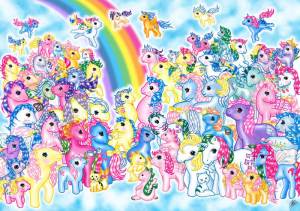 |
| The makeup for this show: phenomenal. |
 Like any good geek, I love me some zombies. So of course I tuned in last night to AMC’s new zombie show, The Walking Dead. And I found myself disappointed. Spoilers ahoy! (NB: I haven’t read the graphic novel. This is just a review of the pilot that aired last night.
The show starts with our hero, Rick, and his misogynistic partner, Shane, talking about how women and men are different. This conversations seems to function solely to tell us that Shane is a bit of a prick, Rick is a genuinely good guy (which I didn’t really buy), and Lori, Rick’s wife, is a bitch. Basically, it took about ten minutes for me to realize I was probably going to blog about this show, and not in a good way.
The dudes, who are police officers, get into a shootout, Rick is shot, and then we see Shane bringing him flowers in the hospital. (He assures us that he didn’t pick them out himself, however. That’s for sissy ladies. And he’s not gay or anything gross.) Rick wakes up, the flowers are dead, and the hospital is full of corpses and ruin. I did like the set up here; Rick has no fucking clue what it going on, and he’s still injured, so he basically cowers home, where he discovers his empty house and runs into Morgan and his young son, Duane. Their family was heading to the refugee camp in Atlanta when Morgan’s wife became infected and got all zombified. She still hangs about, and they can’t leave with her haunting them. Morgan wants to “put her down” and even attempts to in this episode, but he can’t. 
Anyway, Rick and Morgan arm themselves, keep open a line of communication, and Rick sets off for Atlanta, where he thinks his wife Lori and son Carl have headed. We find out that Lori and Carl are with Shane (and Lori is with Shane) outside of the city, because it’s been overrun with zombies. Rick runs into the city on a horse (looking straight out of a zombie videogame), gets his horse eaten by zombies, and takes an incredible amount of time to seal himself up in a tank. (Seriously, this guy must have the lowest amount of adrenaline ever present in a human being. He moves like molasses.)
 |
| In case you missed it, he’s a goddamn cowboy. |
So far, I liked the story okay, and it seems promising for the character development of the people the show seems to care about. Unfortunately, none of those characters are ladies, who existed in this pilot for the sole purpose of helping to advance dude characters’ development. Morgan’s wife is in the refrigerator, gets absolutely no characterization (not even after the fact), and the only reason we even care about her is that Morgan and Duane are all traumatized by this. She gets a lot of face time in this episode solely because she’s been stuffed in the fridge, and we’re supposed to see her (rather pretty for a zombie) face through Morgan’s eyes. And the only other lady character with a name is Lori, who gets very little screen time, and most of that is devoted to kissing Shane, presumably so we can see how whorey she is, since she got over her husband faster than it took for him to heal from a gunshot wound. And perhaps I’m being too harsh on the writers here; they may not want us to judge her so quickly. But it’s difficult to tell, since that is basically the only thing she does onscreen, and the conversation in the beginning of the episode is intended to make us think she’s a bitch. She doesn’t ever get a side in that conversation, and we don’t get to hear about what happened from another party, because she doesn’t actually matter. She exists solely to develop Rick and Shane for us, and doesn’t exist outside of those relationships.
 |
| Get me out of the refrigerator! |
This episode failed the Bechdel test hard, despite being an hour and a half long, and a fucking zombie movie, not a rom com. It could easily have included two women talking about practically anything, including zombies and survival, if they were feeling uncreative. But it didn’t, because it would have had to have two women talking on screen at the same time. And that, apparently, was too fucking difficult.
I think this show could get better. According to their
cast of characters, there are at least some women playing a part in the show later. Significantly less than men, but they’re there. Possibly, then, they will get some personalities and perhaps even plot lines not connected to their dudes and romantic relationships. But I was really disappointed by the premiere, and am not feeling particularly optimistic.
Attention The Walking Dead  writers: women are not plot devices. And we don’t like watching shows that don’t think women matter as characters. Fix it.
Further reading (will be updated):Â









